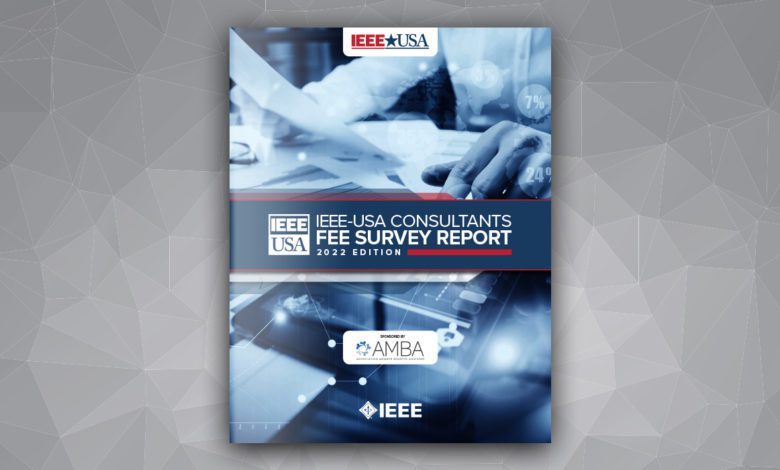
The report includes information and trends on how much consultants charge by region, years of experience and educational levels, as well as information on the impact of supply chain disruptions on consultants’ work.
The median rate consultants charge continues to rise — now at $180 an hour, up $10 over the previous year — and $30 more than just two years ago.
The survey’s findings include:
- Fee-based consultants holding a Ph.D. or an MBA had a $20 higher median hourly rate ($200 an hour) than overall respondents. Eighteen percent of respondents had Ph.D.s, while one-third hold Masters degrees.
- Consultants specializing in Power and Communications charged the highest median rates ($200 per hour).
- Those having five or fewer years of experience charged $140 an hour on average, while those with 25 years or more charged a median of $200 per hour.
- Just more than 10 percent indicated that they have had difficulties collecting bills. This figure has remained consistent over the past two surveys.
As in the past, regional differences were apparent in rates charged. Respondents working in the Middle Atlantic, South Atlantic, and Pacific regions reported charging higher median hourly rates; while those in East North Central and West South Central reported charging below the countrywide average. Charts showing responses from each region, with decile breakdowns, are included in the report.
While supply chain disruption negatively impacted the economy, these disruptions provided opportunities for IEEE members — including requiring redoing or redesigning work to account for new supply chain constraints.
Respondents indicated supply chain disruptions caused them to:
- Create multiple designs with different components
- Widen the pool of suppliers
- Redesign and replace components with ones more readily available — on occasion necessitating the lowering of quality and safety standards
- Increase communication with clients on supply chain issues
- Stretch out timelines and project schedules
- Change design flow and accelerate design
The Report indicates that most consultants’ business comes from repeat clients (an average of 62% of total dollars earned). The Report notes, however, that “having outside connections is also important, as significant earnings come from referrals from clients, friends and networking contacts.” The Report also points out that social media or Google advertising do not play a major role in attracting clients for most consultants.
Further, the Report shows that consultants billing methods have remained relatively constant — with 74% of respondents reporting that they bill hourly; 22% bill a fixed price for work; and 4% percent bill on a daily rate.
The most common areas respondents offer consulting services are in:
- Systems Engineering (31%)
- Project Management (27%)
- Expert Witness (25%)
- Electrical Power Systems (25%)
- New Product Development (22%)
- Management (21%)
- Technical Writing (21%),
- Communications (21%)
According to the Report, “There has been very little movement in these most common areas of expertise since 2018. Systems Engineering has been the top category for the past five years; and Project Management has been second for four out of these five years — and among the top three for all five years.”
The area with the greatest increase since last year was Failure Analysis — mentioned by 10.2% of the consultants in 2021; and 17.0% in 2022.
The Report gives a detailed breakdown of 96 areas of consulting, as well as year-to-year response rates for each, is given in the report.
This year, the IEEE-USA Alliance of IEEE Consultants’ Networks Coordinating Committee (AICNCC) asked respondents to provide recommendations on actions IEEE-USA could take to assist fee-based consultants in their consulting practice. Recommendations submitted were mostly in the areas of helping make connections; increasing availability/awareness of resources; and providing advocacy at both the federal and state levels.
The complete 2022 IEEE-USA Consultant Fee Survey Report is available for purchase from the IEEE-USA Shop. The Report is $29.95 for members. Non-members pay $49.95.







